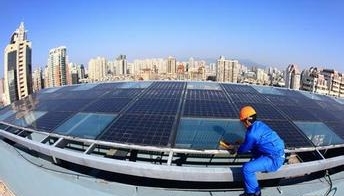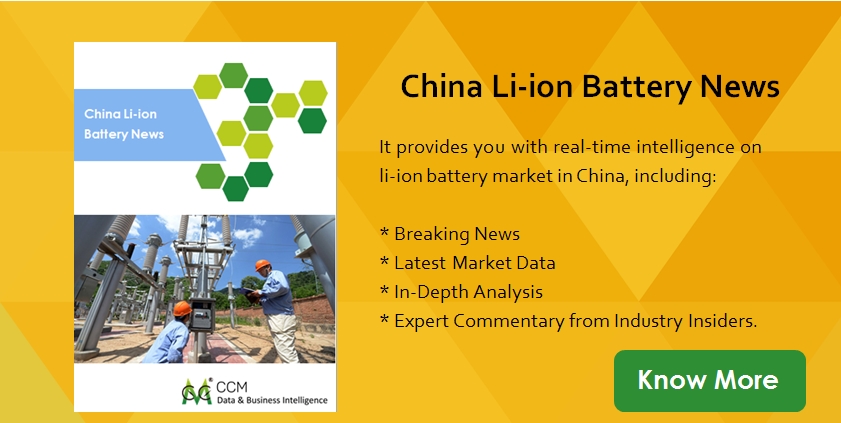On 27 Jan., 2015, the MOF notified that
consumption tax will be levied on some batteries, excluding Li-ion battery.
This policy will have an impact on the development of Chinese battery market
and promote the popularity of Li-ion battery in China.

On 27 Jan., 2015, the Ministry of Finance
of the People’s Republic of China (MOF) issued the Notice to Levy Consumption
Tax on Batteries and Coatings. From 1 Feb., 2015, consumption tax will be
levied on batteries and coatings. Procedures including production, consigned
processing and import will be taxed, at a rate of 4%.
It is noteworthy that the consumption tax
is not targeted at all batteries. Mercury-free battery, Ni-MH battery, lithium
primary battery, Li-ion battery, solar cell, fuel cell and vanadium redox flow
battery (VRB) are exempted from the taxation. Lead-acid battery will be
exempted before 31 Dec., 2015, and be taxed (4%) from 1 Jan., 2016.
In a long term, the consumption tax policy
issued will have an impact on the development of Chinese battery market. Also,
it will promote the popularity of Li-ion battery in China and propel lead-acid
battery enterprises to transform and upgrade.
Batteries exempted from consumption tax are
energy-saving and environmental-friendly batteries. The government is leading
the battery industry to develop in line with the concept of energy saving and
environmental protection. Lead-acid battery, in comparison with energy saving
and environmental-friendly battery, generates heavy pollution. Specifically it
is disadvantaged in energy density, service life, etc.
Regarding application, vehicle start-stop
system will be a breakthrough for Li-ion battery. At present, absorbed glass
mat (AGM) lead-acid battery is commonly used in vehicle start-stop system in
Chinese vehicle market. Domestic enterprises have not yet launched any Li-ion
batteries applied in this field. However, technology is maturing. In January
2015, foreign enterprises, Johnson Controls, Inc. and Toshiba Corporation
jointly released lithium titanate (LTO) battery for start-stop system.

In comparison with lead-acid battery,
Li-ion battery boasts remarkable advantages, such as longer cycle life, higher
power density and higher-rate charging and discharging. Now the price of Li-ion
battery is higher than that of lead-acid battery. The implementation of the
consumption tax policy will weaken the price advantage of lead-acid battery,
and furthermore create opportunities for Li-ion battery to penetrate into
lead-acid battery market.
Insiders of lead-acid battery industry
revealed that consumption tax levied will negatively influence lead-acid
battery enterprises. Under such a circumstance, lead-acid battery enterprises
may develop Li-ion battery instead.
About CCM:
CCM is the leading market intelligence
provider for China’s agriculture, chemicals, food & ingredients and life
science markets. Founded in 2001, CCM offers a range of data and content
solutions, from price and trade data to industry newsletters and customized
market research reports. Our clients include Monsanto, DuPont, Shell, Bayer,
and Syngenta. CCM is a brand of Kcomber Inc.
For more information about CCM, please
visit www.cnchemicals.com or get in
touch with us directly by emailing econtact@cnchemicals.com or calling +86-20-37616606.